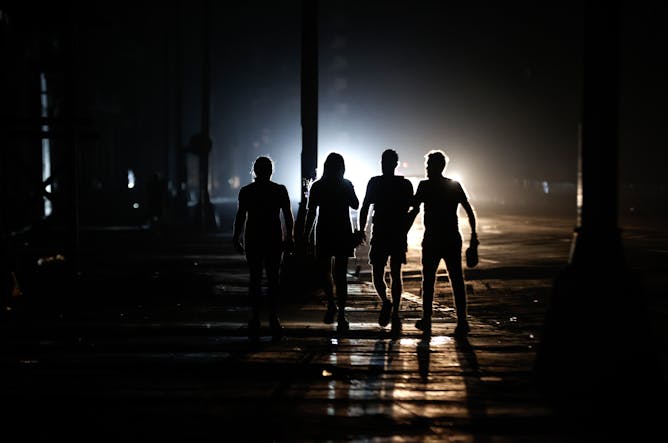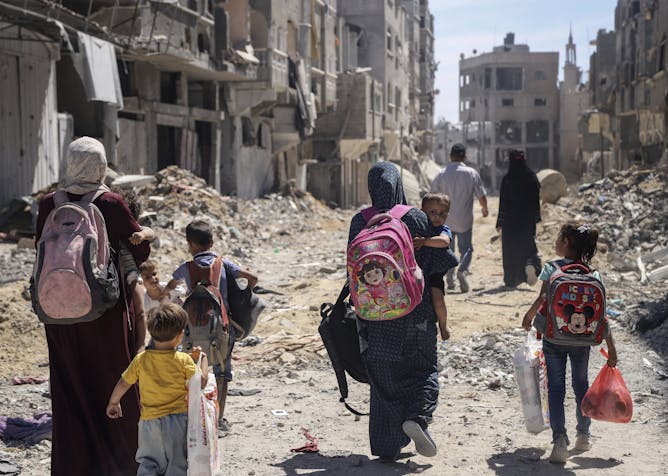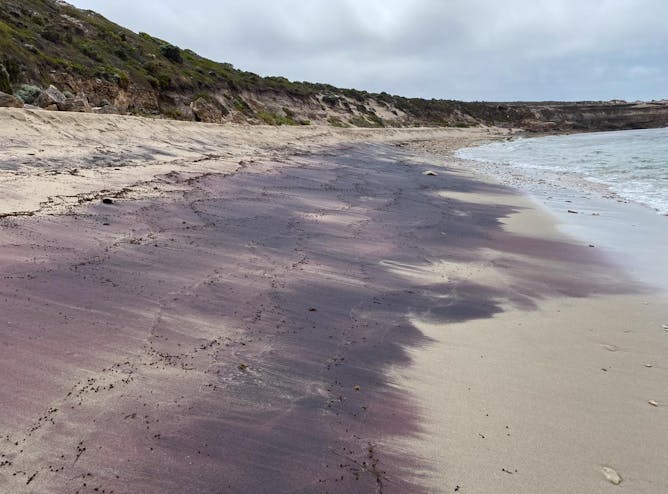|
|
|
|
The lights have gone out in Cuba. For the past week, schools on the Caribbean island have been shut and nonessential workers sent home as the nation suffers from an unprecedented collapse of its national grid. No power means no refrigeration for food or medicine and lengthy blackouts – adding to the hardships already endured by Cuba’s high-poverty population.
So how did the nation get here? Well, as Nicolas Forsans, co-director of the University of Essex’s Center for Latin American & Caribbean Studies, explains, the roots of the current crisis go back decades. A lengthy and ongoing U.S. trade embargo on Cuba, coupled with a failure by the island’s Communist leaders to diversify the nation’s economy, have had a disastrous impact. Meanwhile, since the disintegration of the Soviet Union, Cuba has become more and
more reliant on oil from Venezuela to meet its energy needs. But with Venezuela oil exports to Cuba cut in half this year, Havana has had to seek out other, more expensive options – and it simply doesn’t have the money to do so.
The impact of this energy and economic crisis could be profound. Cuba’s president, Miguel Díaz-Canel, said he will not tolerate protests, but the situation will nonetheless test “the strength and the legitimacy of [his government’s] hold on power,” writes Forsans.
Elsewhere this week, we have been looking at the role civilians play in propping up military coups and asking whether American voters are ready to elect a woman president.
|

|
Matt Williams
Senior International Editor
|
|

People walk down a street during a blackout in Havana, Cuba, on October 20.
Ernesto Mastrascusa / EPA
Nicolas Forsans, University of Essex
Cuba was plunged into darkness for four consecutive nights after the country’s power grid failed.
|

Enas Rami/AP
Tristan Dunning, Macquarie University; Martin Kear, University of Sydney; Shannon Brincat, University of the Sunshine Coast
Failure by the West to rein in Israel’s actions has led to accusations of ‘double standards’ regarding international law.
|

Members of the Malian junta wave as civilians gather to celebrate the overthrow of the president on Aug. 21, 2020.
AP Photo/File
Salah Ben Hammou, Rice University
In the popular imagination, coups d'etat are strictly military-led, palace conspiracies. In reality, a majority of them have required civilian participation.
|

Pink sand made up of garnet rocks on a beach in South Australia.
University of Adelaide.
Gemma Ware, The Conversation
Geologist Sharmaine Verhaert explains her search for the origins of pink sand found on beaches near Adelaide on The Conversation Weekly.
|
|
|
-
Angela L. Bos, Boise State University; Daphne Joanna van der Pas, University of Amsterdam; Loes Aaldering, Vrije Universiteit Amsterdam
A decade ago, people did not even agree on the traits that defined women politicians. Now they see women seeking political office as intelligent, rational, analytical, ambitious and moral.
-
Philip Murphy, School of Advanced Study, University of London
There is no avoiding the UK’s issues of colonial legacy.
-
Mpho Mathebula, University of the Witwatersrand
Interviews with women who have staged naked protests reveal this is not just a shock tactic, but a powerful way of claiming their voices and their dignity.
-
Ken Matthysen, IPIS; Peer Schouten, Danish Institute for International Studies
M23 strategies allow the rebel group to control local governance and to generate revenues from the local economy, including rents from North Kivu’s mineral wealth.
-
Jesica Lopez, Lund University
Rainforest is fast being turned into cattle ranches.
-
Zakaria Sorgho, Université Laval
China’s economic position is now seen as the main threat to the U.S. dollar.
-
Hannah Cutting-Jones, University of Oregon
On July 4, 1891, Oklahoman farmer Oscar Weber Bilby served his neighbors the very first hamburgers on buns.
-
Tom F.A Watts, Royal Holloway University of London
The original 1984 film’s vision of rogue AI turning on humanity remains hugely influential.
|
|
| |
| |
| |
| |
|
|
|
|
|
|
|